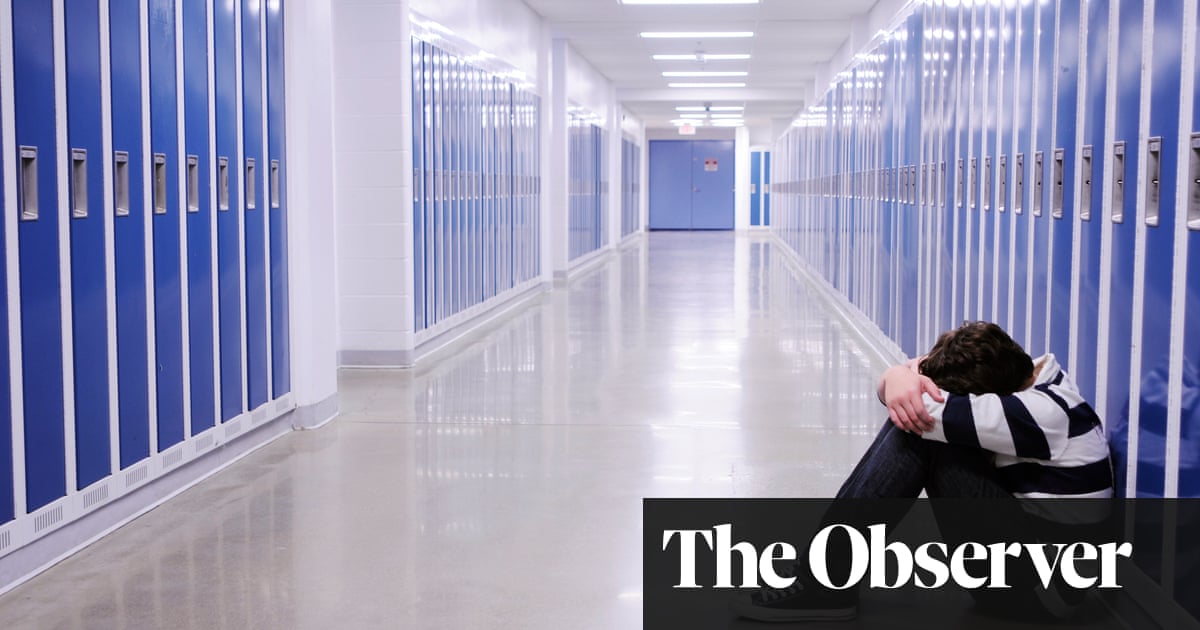
Intensive mentoring for troubled schoolchildren using football kickabouts can significantly enhance wellbeing, increasing happiness equivalent to an unemployed adult getting a job, a study has found.
A project involving more than 2,000 pupils in dozens of secondary schools in Greater Manchester showed that instead of wellbeing declining among pupils at risk of exclusion who had behavioural issues and special educational needs, their happiness scores increased.
The charity behind the approach, Football Beyond Borders (FBB), sends mentors, or “coaches”, into schools to act as trusted adults for at-risk children. Part of the coaches’ work is using aspects of football games – such as dealing with anger at being fouled or the pressure of taking a penalty – to teach children how to cope and build better relationships.
The results have caught the attention of Lord O’Donnell, a former head of the civil service, who is lobbying Keir Starmer to measure all policy choices by their impact on wellbeing if Labour forms the next government.
An assessment of the project by Pro Bono Economics, chaired by O’Donnell, found that a mentor paid £30,000 a year delivered more than £100,000 worth of wellbeing benefits for each school and an average 0.6-point increase among pupils’s scores on the Office for National Statistics Life Satisfaction 0-10 index.
“We talk about football as our Trojan horse,” said James Reeves, senior policy lead at FBB. “If it wasn’t football, it could be music. We just need more focus on relationships and proper, trusted, consistent reliable role models. At the moment the school system doesn’t allow teachers the time and space to do that.”
“Sport has the capacity to enhance wellbeing and future prospects and this study robustly quantifies those effects following Treasury guidelines,” said O’Donnell, who was cabinet secretary to Tony Blair, Gordon Brown and David Cameron. “The next government could make a dramatic impact if they genuinely shifted to basing policy decisions on their impact on sustainable wellbeing. This would not only improve lives but also save money as we spend more on prevention and less on clearing up past errors.”
Government economists have started placing a monetary value on wellbeing gains based on people’s estimates of what they would pay to increase life satisfaction. With the football mentoring programme capable of reducing costly pupil exclusions and improving academic outcomes, it is thought that the social and economic benefits could be even greater.
Martin Convey, assistant headteacher at Ladybridge high school in Bolton, said the FBB programme had helped one year 9 pupil go from “the edge of permanent exclusion to being able to regulate himself more effectively” and he was “vastly improved”.
FBB estimates that there could be more than 800,000 children in UK secondary schools who do not have a trusted adult to support them. Wellbeing was tracked among 2,401 participants in the football-based mentoring and the overall improvements given a monetary value to society of £5.5m. It implies the introduction of similar projects could give a wellbeing boost equivalent to more than £1bn.
The findings come amid rising anxiety among secondary school-age children and declining life satisfaction, according to official statistics. In 2022, the UK ranked 71st out of 74 OECD countries for the average wellbeing of its 15-year-old children.
FBB is now calling on the Department for Education to implement “immediate reform which puts trusted relationships at the heart of our system”. A spokesperson for the DfE said it was testing a model to allow staff from specialist schools for excluded pupils to provided targeted support to mainstream schoolchildren at risk of exclusion. They said the government was also “expanding our attendance mentor programme to 10 further areas from September 2024 and expanding mental health support teams to cover 50% of pupils by March 2025”.
In 2021 HM Treasury issued guidance to Whitehall departments on how to use wellbeing measures to appraise policies and spending. But campaigners, including the Labour peer Lord Layard, co-author of the annual World Happiness Report, want it to be more widely used.
The Pro Bono analysis concluded: “If programmes working with children at risk of low wellbeing are able to demonstrate that they can help to close this wellbeing gap, then the new Treasury guidance can be used to build a stronger economic case for taking action.”












